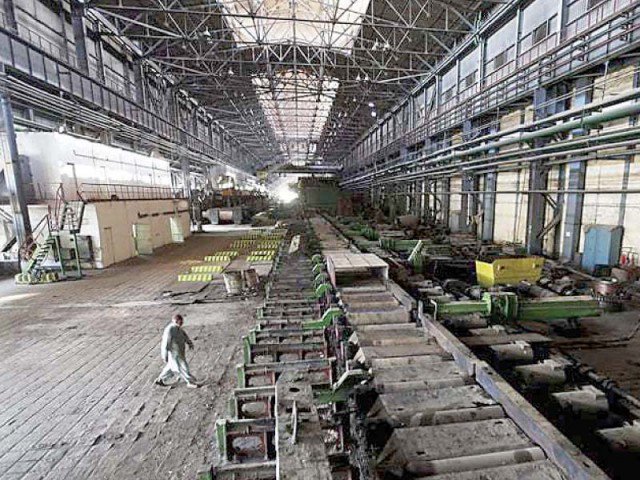
The Ministry of Industries and Production on Tuesday informed the Economic Coordination Committee (ECC) of the cabinet that the operationalisation plan for the country’s largest but closed industrial unit could not be prepared by January 7 - the last date of the deadline.
The ECC did not take decision on abolishing import duties and sales tax on cotton import to bridge the shortfall in domestic production.
Industry worried as steel dumping rises in country
The government lacks the capacity to even prepare a viable plan and it has engaged an experts group from the private sector on a pro bono basis to do the job. The expert group, headed by Khalid Mansoor, CEO of Hub Power Company, sought three more months before it could give an opinion on whether the mill could be managed or not.
“The committee directed that the plan of action should be prepared in a cohesive manner, taking on board the PSM board of directors/management and submitted for final approval as per the given timelines,” said a statement issued by the finance ministry.The previous Pakistan Muslim League-Nawaz (PML-N) government had closed the PSM nearly three years ago after it could not revive the sick unit despite injecting billions of rupees.
Pakistan Steel Mills in further trouble as losses swell to Rs200b
The PTI believes that all the state-owned enterprises can be run efficiently by the professionals. Because of this notion, it has removed PSM from the active privatisation list along with Pakistan International Airlines (PIA).
The statement said the Ministry of Industries and Production shared with the meeting progress on the plan of action currently being formulated by the specially constituted expert group, suggesting viable options to revitalise PSM.
In November last year, the ECC had given the Ministry of Industries two months to submit an operationalisation plan, which ended on Monday.
The ECC was informed that since there was no in-house capacity either in the Ministry of Industries or in PSM, Adviser to PM on Commerce Abdul Razak Dawood had outsourced the job to a private expert group. It was also informed that the expert group would enter into a confidentiality agreement with the government.
The group is still working on formulating various viable options and in view of the enormity of the task and other commitments it could not complete the job within the time frame of two months, according to the Ministry of Industries.
The PTI government has also decided to set up Sarmaya-e-Pakistan company for the management of state-owned enterprises. The company will ensure that the excessive control of line ministries is taken away and political interference is removed in these state units.
Pakistan has informed the International Monetary Fund (IMF) that the board of directors of the company and its management will be in place by March 2019. After that, the first lot of companies will be transferred to the holding company.
Currently, assessments of these companies are in progress for the introduction of a state-owned enterprises law and commercialisation of these units, according to the finance ministry.
Cotton import
The ECC deferred decision on abolishing 5% custom duty and 5% sales tax on the import of cotton. The ECC had a detailed discussion on the proposal of the Textile Division regarding withdrawal of customs duty, additional customs duty and sales tax on cotton import, according to the statement.
The proposal was aimed at facilitating cotton import to bridge the demand and supply gap, thereby helping the textile industry, especially the export segment, it added.
The committee noted that detailed trade and revenue-related data was required, which was not made part of the proposal. The relevant ministries were directed to fill the data gap so that an informed decision could be taken. The duties and taxes had been reintroduced in July last year to protect the interest of farmers. However, the taxes appeared unjustified as Pakistan was not producing enough cotton to meet all the requirements.
According to the Cotton Crop Assessment Committee, the cotton crop for the year 2018-19 is expected to be around 10.8 million bales of 170 kg. There is a reduction of nearly 10% in cotton production this year as compared to last year. The production is also 24% less than the target of 14.37 million bales.
The cotton requirement has been assessed at 12 to 15 million bales annually.



1732503274-0/Untitled-design-(43)1732503274-0-165x106.webp)
1732501636-0/Untitled-design-(42)1732501636-0-165x106.webp)
1732486769-0/image-(8)1732486769-0-270x192.webp)











COMMENTS (1)
Comments are moderated and generally will be posted if they are on-topic and not abusive.
For more information, please see our Comments FAQ